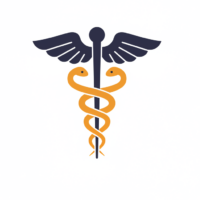
Understanding Blood Pressure Medications: A Guide for Patients in Chicago IL
High blood pressure (hypertension) is one of the most common health issues in the U.S., affecting nearly half of all adults. If left untreated, it can lead to serious conditions like heart disease, stroke, and kidney failure. Fortunately, there are effective medications available to manage blood pressure and reduce these risks.
This guide provides a reliable overview of blood pressure medications and local resources available in Chicago, IL for those seeking treatment and support.

What Is High Blood Pressure?
High blood pressure occurs when the force of blood pushing against artery walls is consistently too high. It’s often called the “silent killer” because it usually has no symptoms but can cause long-term damage.
A blood pressure reading of 130/80 mmHg or higher is considered elevated and may require lifestyle changes, medication, or both.

Common Blood Pressure Medications
There are several types of medications used to treat high blood pressure. The right choice depends on your health profile, age, and other conditions. Here are the most common types:
A blood pressure reading of 130/80 mmHg or higher is considered elevated and may require lifestyle changes, medication, or both.
| Diuretics (Water Pills) | These help your body remove excess sodium and water, which can lower blood pressure. Common options: Hydrochlorothiazide, Chlorthalidone Possible side effects: Increased urination, low potassium levels. |
| ACE Inhibitors | These relax blood vessels by blocking a hormone that narrows them, lowering blood pressure. Examples: Lisinopril, Enalapril Possible side effects: Dry cough, elevated potassium levels. |
| ARBs (Angiotensin II Receptor Blockers) | These work similarly to ACE inhibitors but are less likely to cause coughing. Examples: Losartan, Valsartan |
| Calcium Channel Blockers | These prevent calcium from entering heart and artery cells, relaxing blood vessels. Common types: Amlodipine, Diltiazem Possible side effects: Swelling in the ankles, dizziness. |
| Beta-Blockers | These slow the heart rate and reduce blood pressure. Examples: Metoprolol, Atenolol Commonly used after a heart attack or for heart failure patients. |
| Combination Medications | Some medications combine two drugs into one pill for better control and convenience. |
Note: Never adjust or stop your medication without consulting your doctor. Regular monitoring and follow-up visits are essential.

Managing Blood Pressure Effectively
- Take medications as prescribed: Consistency is key.
- Monitor your blood pressure at home using a reliable cuff.
- Maintain a healthy lifestyle:
- Reduce salt intake
- Stay active
- Maintain a healthy weight
- Avoid smoking


Where to Find Help in Chicago IL
If you live in Chicago, you have access to excellent healthcare resources for managing hypertension. Here are some options:
| Telehealth Options | Many providers in Chicago now offer virtual visits, making it easier to manage blood pressure from home. |
| Pharmacy Support | Local pharmacies like Walgreens and CVS in Chicago offer blood pressure checks, medication counseling, and auto-refill programs. |
| Community Health Centers | Erie Family Health Centers, Heartland Health Centers, and Mile Square Health Center provide affordable care, even for those without insurance. |
| Primary Care & Cardiology Clinics | Northwestern Medicine, Rush University Medical Center, and UIC Health offer expert care and specialized hypertension clinics. |
High blood pressure is manageable with the right medication and support. If you’re in Chicago, IL, there are many healthcare providers and resources available to help you take control of your health. Early treatment, regular follow-ups, and healthy habits can make a lasting difference.
Talk to your doctor about the best medication plan for you—and don’t wait to take the first step.

